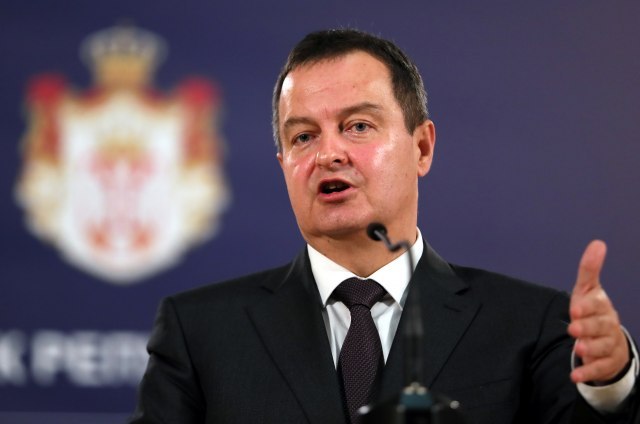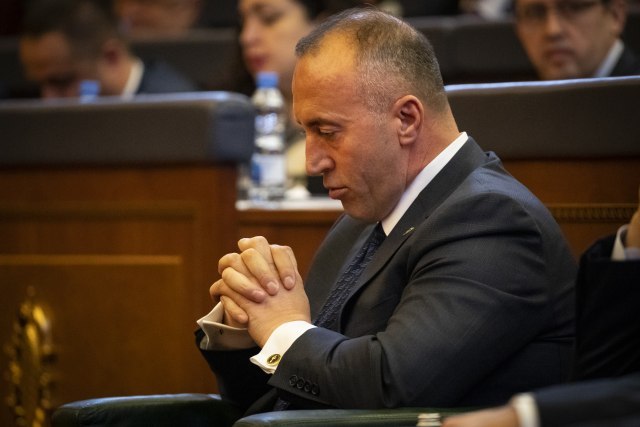SManalysis
The State Department’s latest intervention in a European election served nobody’s interests at all.
BY AGIM NESHO | JULY 22, 2019, 10:51 AM
Albanian opposition supporters wave their national flag and a U.S. flag during a protest demanding the resignation of the Albanian prime minister outside the government building in Tirana on Feb. 16.
Albanian opposition supporters wave their national flag and a U.S. flag during a protest demanding the resignation of the Albanian prime minister outside the government building in Tirana on Feb. 16.

GENT SHKULLAKU/AFP/GETTY IMAGES
Much has been written the last two years about the retreat of democracy around the world and the onset of what has been called a “democratic recession.” Russian interference, Chinese expansionism, European stagnation, and the turning away of the United States from the liberal world order it helped establish are all factors that have been cited to explain this trend.
But there is another particularly subtle, equally dangerous, and overlooked factor contributing to instability and the rollback of democracy. That factor is confusion—specifically, confusion about the Trump administration’s diplomacy. Consider the case of Albania. The U.S. State Department’s recent interference in local elections has turned a minor political mess into a combustible situation with no clear way out.
Albania today has been in a constitutional crisis since February. A series of leaks published in the German newspaper Bild revealed systematic vote buying and rigging by the ruling Socialist government of Prime Minister Edi Rama in the 2017 parliamentary elections. The opposition coalition of the Democratic Party and the Socialist Movement for Integration, protesting widespread corruption in Rama’s government and questioning the legitimacy of the parliamentary elections, resigned their parliamentary seats, vowing to boycott the political process until Rama stepped down and the Socialists formed a new government.
In the face of escalating protests and popular pressure, Albanian President Ilir Meta canceled nationwide local elections that were scheduled for June 30, rescheduling them for October. In the meantime, he invited both the government and opposition to negotiate a solution to the crisis. But the Rama-led government unilaterally pressed on with the elections despite the boycott, orchestrating what has been ridiculed by many Albanians as a communist-style “election without choice.” The ruling Socialists were the only candidates in 35 out of 61 districts, with some leftist and center-right parties running against them in the rest.
The Socialists have also initiated proceedings to impeach and remove the president under a pretense that he acted unconstitutionally to cancel the vote. (The Constitutional Court has been unable to weigh in because its judges are undergoing anti-corruption vetting.) Taken together, these actions threaten to turn the country into a one-party state in which all the institutions of power—all mayors offices and local councils, parliament, council of ministers, prosecutor general, the presidency, and the courts—are controlled by one party, with the elected representatives of more than 45 percent of the country, represented by the opposition, protesting in the streets for due process.
Matthew Palmer, the U.S. deputy assistant secretary of state for European and Eurasian affairs, stepped into this already tense pre-election situation in a way that managed to make matters worse. There were two aspects to Palmer’s intervention: holding the opposition responsible for any violence and validating the go-it-alone, one-party June 30 elections. While the first message is understandable, the second runs counter to all democratic principles.
Palmer perplexingly argued that the elections should first be held (even at the expense of creating a one-party state without checks and balances), followed by the government’s selection of a new constitutional court, which would then decide on the validity of the vote. (At this point, the opposition would never accept the legitimacy of a constitutional court unless it plays a role in its selection.) He also implicitly suggested that the United States would cut ties with any parties whose supporters engaged in violence, without acknowledging the merits of the opposition’s grievances about having been unjustly marginalized in the electoral process. A basic premise of governance is that for institutions to function properly—whether elections or courts—they need to be viewed as legitimate. Palmer suggested that Albanians ignore this principle, without acknowledging the dangerous consequences.
Up until the June 30 elections, Albania was a democracy without functioning institutions fighting for the fairness of its elections; as of July 1, thanks to the dangerous path taken by Rama’s coalition and a misplaced intervention by Palmer, the country today is neither a democracy nor a republic.
Albanian voters ultimately ignored both the Socialist government’s campaigning and Palmer’s attempted intervention by silently abstaining from the election. The result was a historically low turnout of around 20 percent in the elections. In its stinging analysis of the elections, the international observation mission of the Organization for Security and Cooperation in Europe concluded that they were held “with little regard for the interests of the electorate.”
All this raises serious questions of the State Department, which is still advocating that Albanians accept the legitimacy of these elections. On what basis would the United States deny the demands for fairness by the opposition, who cannot trust their electoral process? Why not follow the path of compromise offered by Albania’s own legitimately elected president? There is no clear resolution to the approach Palmer and his fellow State Department officials have pursued.
There are also broader questions raised by this affair: Who’s minding the store at the State Department while Secretary of State Mike Pompeo focuses on key hot spots and foreign-policy initiatives? Who is guiding the U.S. bureaucrats who play such a key role in maintaining the stability of fragile countries and regions around the world and with what principles? It seems clear that the unprecedented lack of senior-level confirmations at the State Department is taking its toll.







